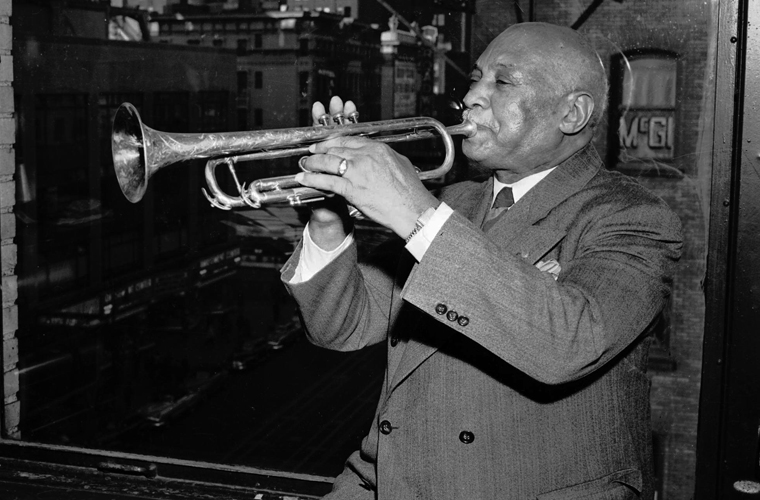W.C. Handy, born William Christopher Handy on November 16, 1873, in Florence, Alabama, was a pioneering American blues composer and musician. He is often referred to as the “Father of the Blues” due to his significant contributions to the genre and his role in popularizing blues music in the early 20th century. Handy’s early exposure to music came from his father, a minister who played the guitar and organ. He was also influenced by the music he heard in the African American communities of his hometown. After studying music and teaching himself to play various instruments, Handy began his career as a musician, traveling and performing in various minstrel shows and bands.
In 1912, Handy achieved widespread recognition with the publication of his composition “Memphis Blues,” which is considered one of the first blues songs to be published. This marked the beginning of a prolific period for Handy, during which he composed numerous influential blues songs, including “St. Louis Blues” and “Beale Street Blues.”
Handy’s impact on the development of blues music extended beyond his compositions. He played a key role in popularizing the blues by arranging and promoting performances, as well as by establishing his own music publishing company to distribute his works. His efforts helped bring the blues to a wider audience and contributed to its eventual recognition as a major musical genre.
In addition to his musical contributions, Handy was also an advocate for African American musicians and composers. He worked to secure fair compensation for their work and sought to raise awareness of the cultural significance of blues music. His efforts helped pave the way for future generations of African American musicians to gain recognition and success in the music industry. Handy’s influence on American music was further solidified by his autobiography, “Father of the Blues,” which was published in 1941. In this book, he documented his experiences and provided valuable insights into the origins and development of blues music, earning him further acclaim as a leading authority on the subject.
Throughout his career, Handy received numerous accolades for his contributions to music, including honorary degrees and induction into the Songwriters Hall of Fame. His legacy continues to be celebrated through performances of his music and scholarly studies of his impact on American culture. W.C. Handy’s pioneering work in blues music has left an indelible mark on the American musical landscape. His compositions and advocacy efforts have contributed to the enduring popularity and cultural significance of the blues, ensuring that his legacy will continue to inspire and influence musicians for generations to come.


